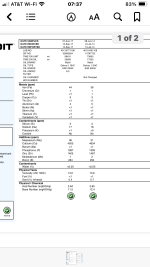Dan Grec
Expedition Leader
So with regards to a modern diesel, would the issue solved by simply removing the DPF and related sensors?
Unfortunately not.
The problem with "dirty diesel" is that it isn't *just* dirt (which can be filtered out), but also the insanely high sulphur content.
In the developed world Ultra Low Sulphur diesel is somewhere around 15 parts per million.
Plenty of countries in West Africa and elsewhere are over 2000 parts per million.
The sulphur can not be filtered out.
So this sulphur causes all kinds of problems with very high pressure injection pumps, with the tiny nozzles on the injectors, with the sensitive linings on the cylinder walls, by diluting the engine oil and then creating drastically more engine wear, etc. etc.
The results are not entirely known, and while you may get away with it for tens of thousands of miles, it seems almost certain that high sulphur diesel will be causing damage.
I went back and forward with the head of engine design at VM in Italy who designed the 3.0 ecoDiesel in my new Wrangler (Same engine in the RAM 1500, Grand Cherokee, etc.). He did NOT recommend running the engine on high sulphur diesel and confirmed it WILL damage the engine, even if I removed all the emissions stuff and re-flashed the ECU.
I did a big video about it all recently, now that I have a very modern diesel and intend to keep exploring the world.
-Dan

